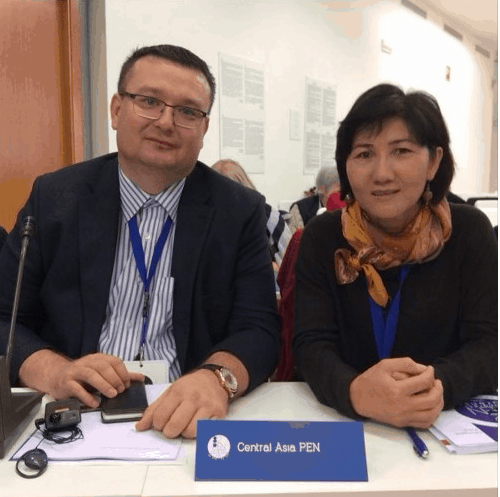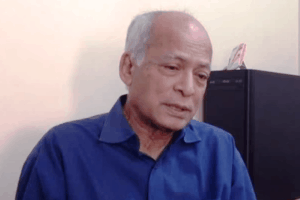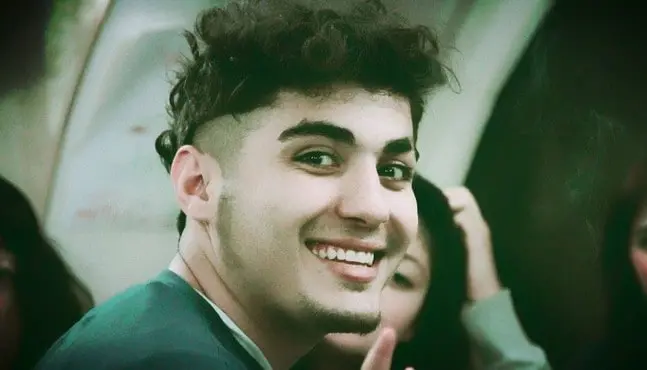By: Rachel Caywood
The upcoming Russian film Matilda, directed by Aleksei Uchitel, has attracted quite a lot of attention for a movie that hasn’t yet been completed. The film centers on the love affair between young ballerina Mathilde Kschessinskaya and the future Tsar Nicholas II before his marriage to Alexandra Feodorovna, the future empress. When its first trailer was released in April 2016, the backlash from the Orthodox Christian community in Russia was unequivocal: the conservative Tsar’s Cross organization denounced it as “pornographic and unpatriotic.”
In November, Tsar’s Cross appealed to sympathetic State Duma Deputy Natalya Poklonskaya, who filed a request to the prosecutor general to begin a criminal inquiry of the film which, according to Uchitel, had already been reviewed and deemed free of violations. The essence of the group’s complaints: the film portrays Nicholas II—a canonized Russian Orthodox saint—as a sinner, and Russia “as a country full of ‘drunkards, gallows, and fornicators.’” After the Prosecutor General’s Office in Moscow again investigated and announced in January that it “was unable to uncover any evidence suggesting the film might offend religious beliefs,” over 20,000 Russian Orthodox activists signed a petition to ban the film. Poklonskaya, who has yet to see the film herself, requested that the legal inquiry into the film be reopened, this time focusing on its shooting script rather than just the trailer. She also questioned the legality of budgetary funds used to produce the movie and suggested it be judged by a commission of historians and church members.
On February 7, Kino Soyuz—Russia’s Union of Filmmakers—penned a letter protesting the treatment of the unfinished film and the deteriorating state of freedom of artistic expression in Russia. “We want to live in a secular, democratic country,” they wrote, “where censorship is not only prohibited by the Constitution but also in reality.”
The filmmakers point to a recent pattern of limitations on artistic freedom in Russia, spearheaded by Orthodox Christian activists without official support from the Russian Orthodox Church or the government. The Church has emphasized the need to consider all sides. “First we have to wait for the film to be released before we can judge it,” said Wachtag Kipshidze on the Church’s behalf. He added that “one likewise has to consider the emotions of people who feel harmed by it.”
The government has taken up a similar tactic. On February 7, Kremlin spokesman Dmitry Peskov stated that the administration “does not want to take sides” in the matter of the film. Although he condemned the threats of violence against cinemas planning to show the film, Peskov also noted that “this is a two-way road and there should be mutual responsibility.” In other words, while Russian consumers should do their best to let controversial work slide off their backs, artists should also “clearly explain that [their work] has no plans to offend someone’s feelings.”
This has become Russia’s refrain. In March 2015, Culture Minister Vladimir Medinsky demanded that artists “explain” themselves in order not to offend religious believers, a position which naturally creates an environment that is deferential to the Church. In recent years, this sentiment has reverberated throughout Russia, a country whose constitution explicitly bans censorship but whose understanding of the word has proven to be frustratingly malleable.
In June 2013, for example, the Russian government amended Article 148 of its Criminal Code, intensifying the terms of punishment for “insulting religious feelings of believers” with fines and up to three years of jail time. The language of the law is sufficiently vague that for every alleged offense there follows a discussion about whether it was intended or accidental, explicit or indirect. By encouraging this debate, the government dictates an inevitability of conflict between religious freedom and freedom of expression that allows authorities to stand back and even express a sort of thwarted desire for artistic freedom—if only the artists would do their part, and avoid making offense—while being secure in the knowledge that the Orthodox lobby will take up its mantle in protest against religious “offenses.”
In an October 2016 speech to the Union of Theater Workers of Russia, director Konstantin Raikin expressed concerns that foreshadowed the filmmakers’ letter from earlier this month: that censorship, in the guise of patriotism and morality, is creeping back into the norm in Russia; that conservative activists hiding behind “all kinds of good and lofty words” are gaining traction and legitimacy; and that the Kremlin’s insistence that they aren’t taking sides rings false when the government has provided believers with a vague, all-encompassing legal avenue to charge those who disagree with them. Raikin called for artists to present a unified front in the face of censorship:
“I believe that we need to unite. I repeat: we need to be united…I may not like some other director that much, but I will lay down my life for his right to speak out…This is normal: there will be disagreement, there will be indignation…Someone will be outraged—it is wonderful…Different, controversial, beautiful!”
The absence of a robust democratic mechanism to protect and ensure the normality of differences allowed Minister Medinsky to place the burden of explanation on Boris Mezdrich in 2015, when Mezdrich’s modern production of Wagner’s opera “Tannhäuser” offended religious feelings. It allowed President Vladimir Putin, in a meeting with concerned Russian artists in December 2016, to magnanimously proclaim that “any effort to interfere with theater performances or exhibits” is “absolutely inadmissible,” while at the same time charging artists with the responsibility to “avoid offending religious believers.” It allowed authorities to stand by as religious leader Metropolitan Tikhon called the classic Russian ballet The Nutcracker “a work of the occult,” initiating fears of another “Tannhäuser”-type scandal and the government of Novosibirsk’s prompt scheduling of a roundtable to discuss the “situation” in January 2017.
Also in January, the Culture Ministry created a working group for theaters to resolve conflicts of content or presentation before performances begin. It is too soon to tell what impact this working group’s mediation efforts will have, though some have raised concern that it could be a vehicle to promote self-censorship within the artistic community, as artists themselves take on the duty of avoiding offense.
Many are fighting to leave their creations unchanged. But in the face of harassment, ridicule, cancellation, fines, or prison rained down by religious activists and the State, it may become all too tempting for artists and writers to temper their boldness with timidity and their innovation with the familiar.



